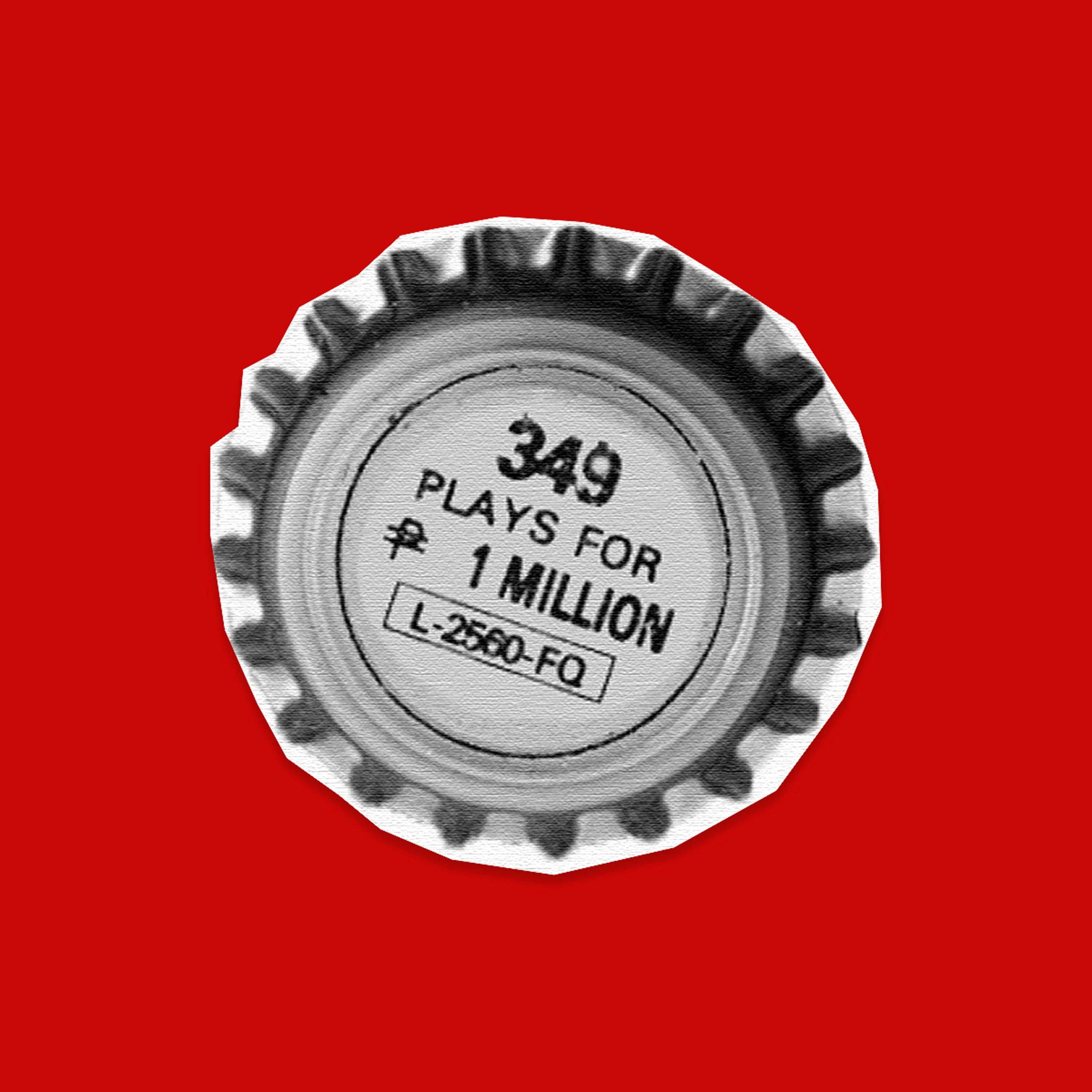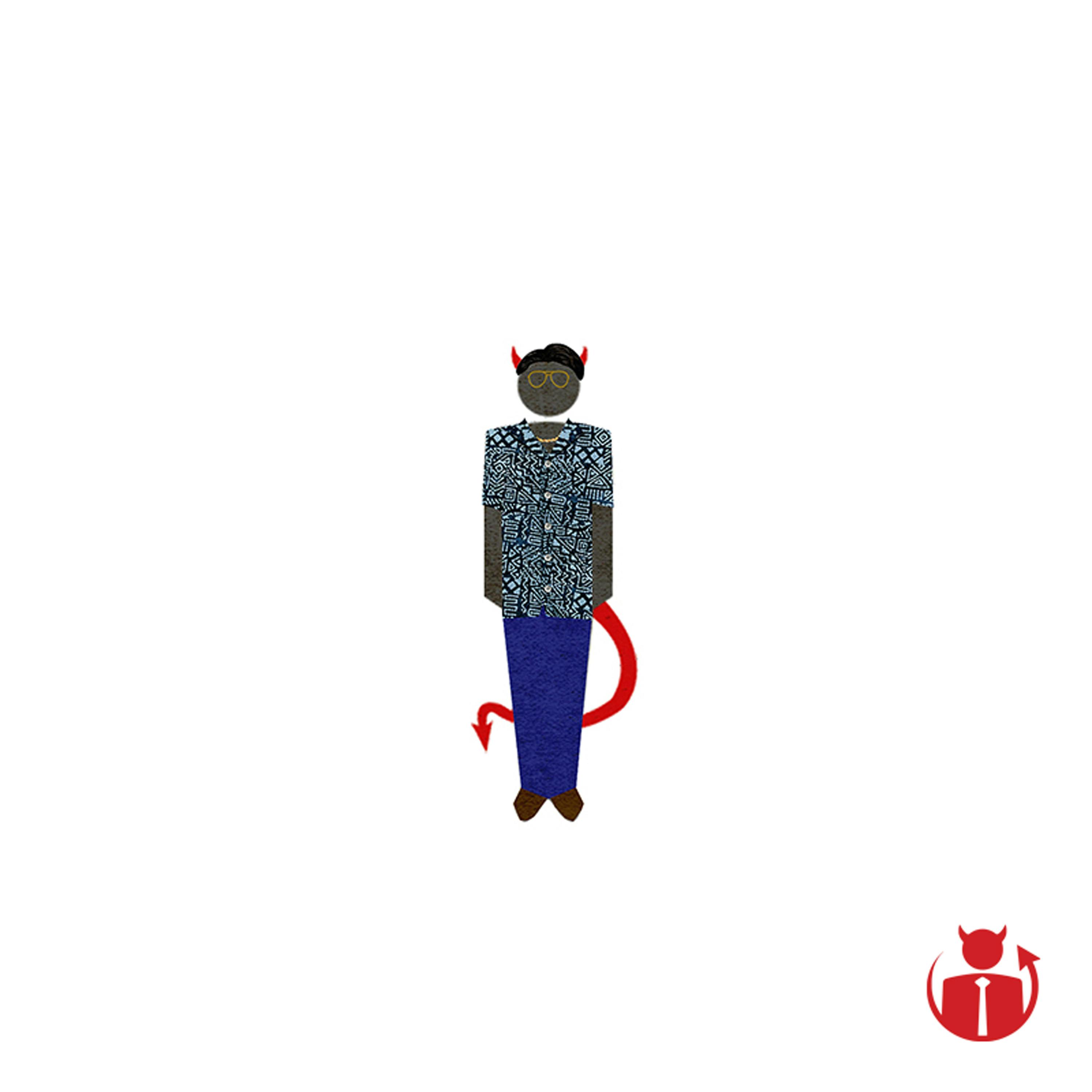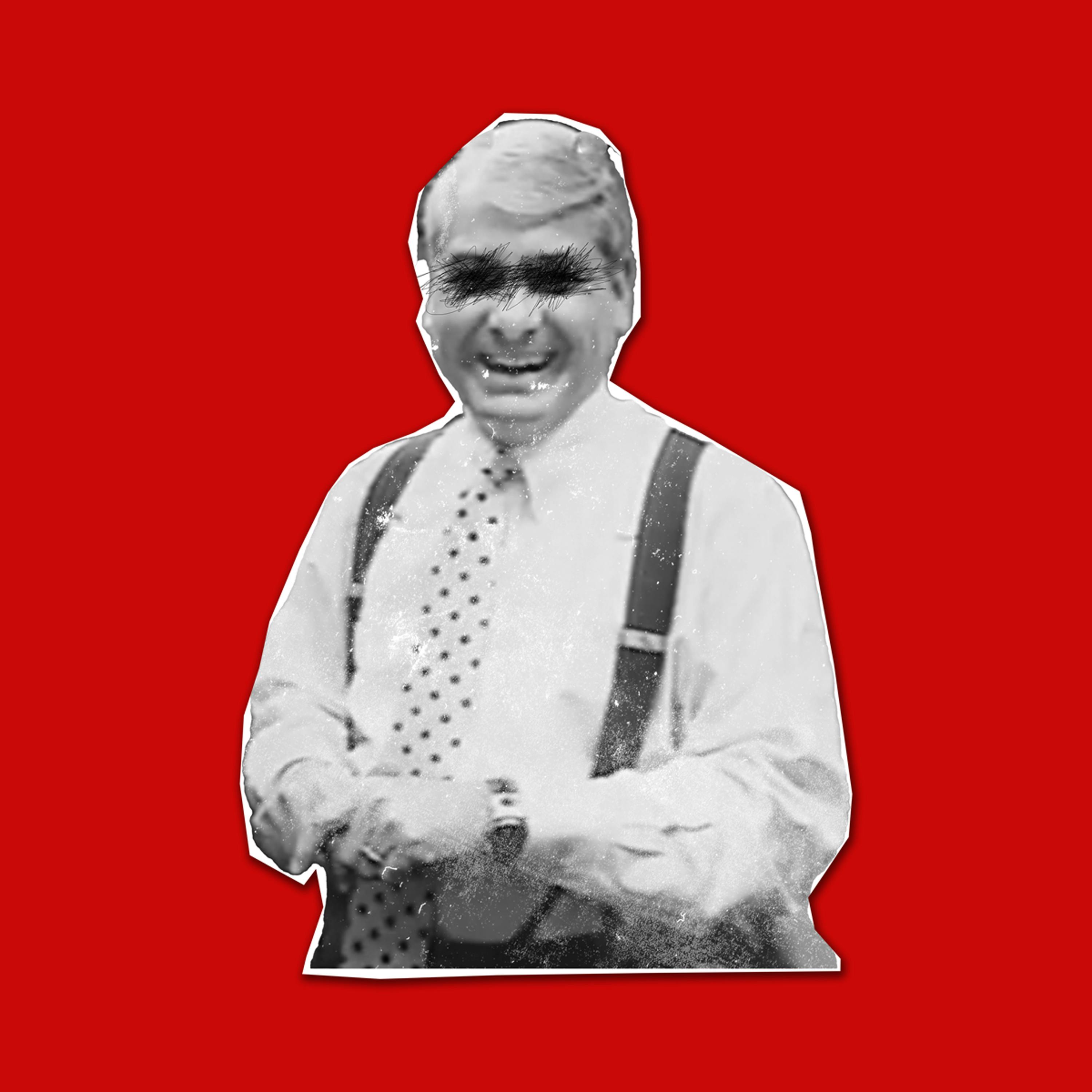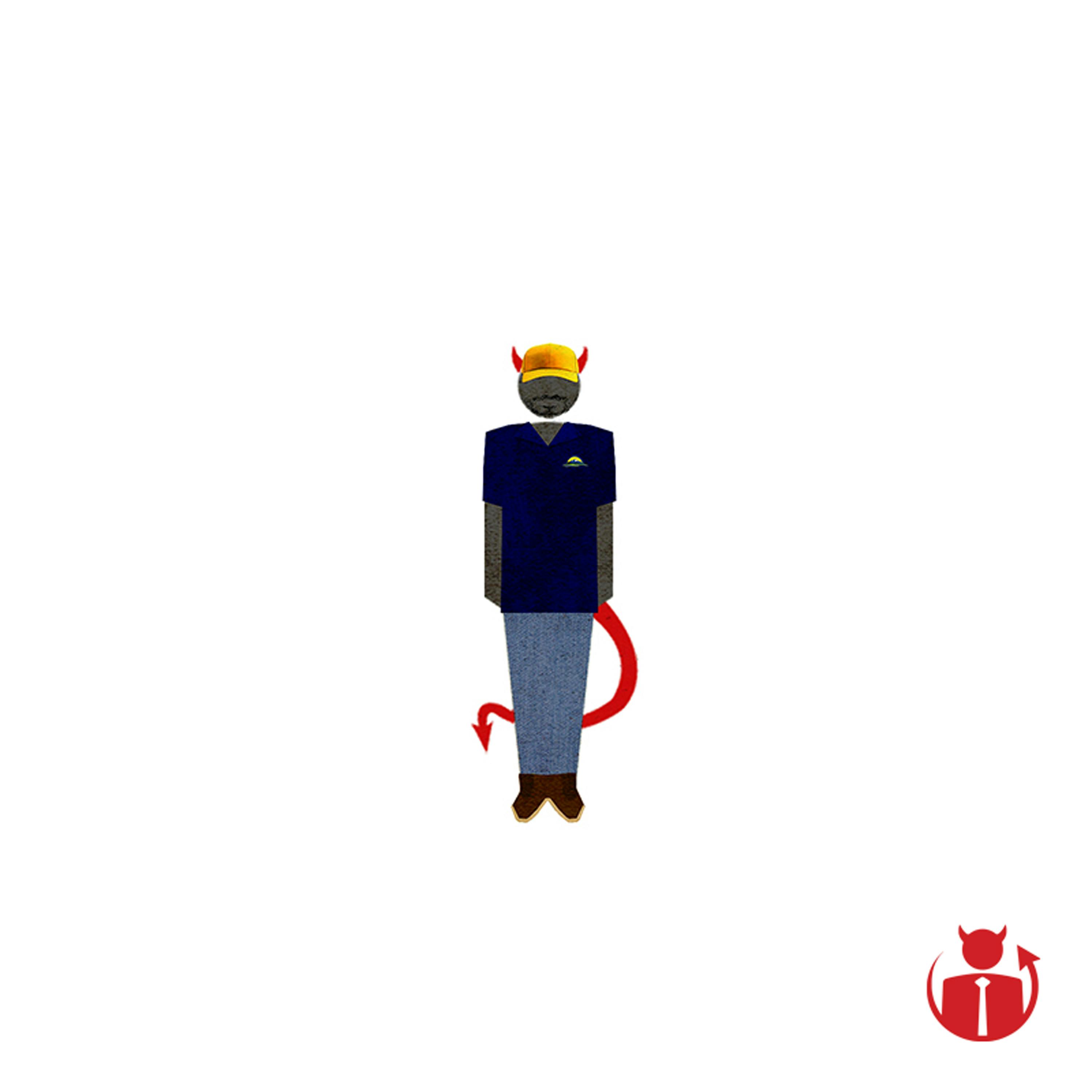Bonus: The Sweepstakes (Pepsi Number Fever)
–––-–----------------------------------------
PATREON: Patreon.com/Swindled
DONATE: SwindledPodcast.com/Support
CONSUME: SwindledPodcast.com/Shop
–––-–----------------------------------------
MUSIC: Deformr.com
–––-–----------------------------------------
FOLLOW:
SwindledPodcast.com
Instagram.com/SwindledPodcast
Twitter.com/SwindledPodcast
Facebook.com/SwindledPodcast
Thanks for listening. :-)
Learn more about your ad choices. Visit podcastchoices.com/adchoices
Press play and read along
Transcript
Speaker 1
Support for swindled comes from Simply Safe. For the longest time, I thought home security meant an alarm going off after someone broke in.
But if the alarm is already blaring, it's too late.
Speaker 1
The damage is done. That's a reactive approach, and it leaves you with that awful feeling of violation, even if the intruder runs away.
That's why I switched to Simply Safe.
Speaker 1
They've completely changed the game with Active Guard outdoor protection. designed to stop crime before it starts.
Their smart, AI-powered cameras don't just detect motion.
Speaker 1
They can tell you when there's a person lurking on your property. That instantly alerts SimplySafe's professional monitoring agents in real time.
And here's the game changer.
Speaker 1
The agents can actually intervene while the intruder is still outside. Talk to them through two-way audio, hit them with a loud siren and spotlight.
and call 911 if needed.
Speaker 1 It's proactive security, and that's real security. I trust SimplySafe because there are no long-term contracts, no hidden fees, and a 60-day money-back guarantee.
Speaker 1
They've been named best home security systems by U.S. News and World Report for five years in a row, and I can see why.
Get 50% off your new SimplySafe system at simplysafe.com/slash swindled.
Speaker 1 That's 50% off your new SimplySafe system by visiting simplysafe.com/slash swindled. There's no safe like SimplySafe.
Speaker 1
Support for swindled comes from Honey Love. It's officially cozy season.
Soft sweaters, layered looks, comfort on every level.
Speaker 1
But if your bra still feels like medieval body armor, it's time for an upgrade. Honey Love makes the best wireless bras you will ever wear.
Seriously.
Speaker 1 No wires, no digging straps, no weird bulges, just support that actually feels good. Think you'll miss the structure of an underwire? Think again.
Speaker 1 Honey Love's smart design does all the lifting and shaping without any of the pain. Honestly, it's the first bra you won't rip off the second you get home.
Speaker 1
You can wear them under a sweater, on a night out, even just lounging around the house. And every time, you'll forget you're even wearing it.
This is the bra you'll actually enjoy wearing.
Speaker 1
Honey Love's crossover bra will be your new go-to. But their new Cloud Embrace Wireless t-shirt bra sold out in a few days for a reason.
It feels like a cloud against your skin.
Speaker 1 And they don't just stop at bras. They've got shapewear, tanks, and leggings that are just as comfortable and supportive.
Speaker 1 Treat yourself to the most comfortable and innovative bras on earth and save 20% off site-wide at honeylove.com/slash swindled. Use our exclusive link to get 20% off, honeylove.com/slash swindled.
Speaker 1
After you purchase, they'll ask you where you heard about them. Please support our show and tell them we sent you.
Experience the new standard in bras with Honey Love.
Speaker 3 Oh, hey, you're still here?
Speaker 3 Yeah, me too.
Speaker 3
If you didn't know, season four of Swindled has come to an end. I know, I know it's sad, but don't worry, we will be back next year.
Better than ever.
Speaker 3 There's still so many stories I want to tell and new ones happening every day, and we'll get to those, I promise, but it takes time. Swindled is still just a team of two.
Speaker 3
I write, research, produce, and Trevor makes the music. And I think that singular, cohesive vision is beneficial to the show.
Quality over quantity, right?
Speaker 3 I hope you can appreciate that, like we appreciate your patience. But if you can't wait that long, consider becoming a valued listener at patreon.com slash swindled.
Speaker 3 Already there are 20 plus bonus episodes waiting for you, including the one you're about to hear. And we're planning to release several more during the break.
Speaker 3
So hopefully that will help ease the pain. It will definitely help help ease ours.
The only way that we can continue to do this is with your support, which is more vital than ever while we are away.
Speaker 3
Send us a donation, buy a t-shirt, join the Patreon. Come on, man, it's the holiday season.
Don't make me beg.
Speaker 3
And to everyone that has already contributed or continues to support the show, thank you. You're amazing.
Words cannot describe our gratitude.
Speaker 3
Okay, that's the end of my emotional appeal. Did it work? I hope so.
Patreon.com/slash swindled. Enjoy the episode.
See you next year.
Speaker 4 They bribed government officials
Speaker 4 for clear violations of decades they law earlier in the unethical pay to plagiarism
Speaker 4 that were wasted.
Speaker 4 Now we have the key books and records to hide that.
Speaker 3 In the early 90s, Pepsi-Cola only held 4% of the soda market share in the Philippines.
Speaker 3 So, in order to grow its consumer base and hopefully claim the top spot from its dreaded rival Coca-Cola, the Pepsi subsidiary in the Philippines introduced a new promotional lotto game called Number Fever.
Speaker 3 To play, customers would save the specially marked bottle caps or crowns of Pepsi 7-up or some Phantom-like orange drink they called Merinda.
Speaker 3 Underneath those bottle caps was a special three-digit number, which was basically a raffle ticket in a daily drawing for a chance to win up to 1 million pesos, tax-free, which equaled a little less than $40,000 in U.S.
Speaker 3 currency in 1992.
Speaker 3 $40,000 may not sound like a life-changing amount of money for most of us in first world countries, but Pepsi knew that for most Filipinos, that amount of money was unimaginable.
Speaker 3
The minimum wage in the country at the time was 118 pesos a day. For the average worker, $40,000 was equal to 23 years worth of pay.
Pepsi knew that their products would be flying off the shelves.
Speaker 7 Doctor, word about the number fever? Huh?
Speaker 6 Number fever? What fever? What's the number fever?
Speaker 6 One million pesos? How?
Speaker 7 Just look under the specially marked crowns of Steven Up, Marinda, Malatindu, and Pepsi. And if the number is the same as any of the daily winning numbers, you win the amount printed on the crown.
Speaker 9 What are we waiting for?
Speaker 10 Come on!
Speaker 3 Sorry, some of this audio is rough, but you can still feel the excitement, right?
Speaker 3 For weeks, Pepsi bombarded Filipino media with advertisements for the sweepstakes.
Speaker 3
More than 29 radio stations played the spots on tops of promos in four different newspapers. You could be a millionaire, all of the ads exclaimed.
5,000,
Speaker 3 5,002,
Speaker 10 5,003,
Speaker 10 5,004,
Speaker 10 5,050!
Speaker 9 The more number of feeder crowns you collect, the greater your chances of becoming a millionaire.
Speaker 3 Every night, families would gather around the TV, turn on the Channel 2 news, and compare the numbers on their collected bottle caps with the winning number flashing on the screen.
Speaker 3 Of course, most of the players would go to bed disappointed. The odds of winning the grand prize were reportedly 29 million to one.
Speaker 3
But that did not stop anyone from playing. For Pepsi, the promotion had worked exactly as planned.
Sales of their products were up 40% throughout the Philippines.
Speaker 3 The company now controlled a quarter of the market. Apparently, half of the country's population had participated.
Speaker 3 Some called Pepsi's number fever the, quote, most successful marketing promotion in the world. So successful that the company decided to extend the game an additional five weeks for a total of 17.
Speaker 3 More time to sell more products, more bottle caps for the consumer to collect, more chances to become a millionaire.
Speaker 3 By May 1992, Pepsi had given away 51,000 individual prizes, including 17 1 million peso grand prizes.
Speaker 3 New commercials for the sweepsakes began to air across the country, showing the new Filipino millionaires accepting their good fortune.
Speaker 8 Pepsi congratulates the first Number Fever millionaire.
Speaker 3 I'm very happy. I think that guy just said, if he just won a million pesos, who wouldn't be?
Speaker 3 Well, as it turns out, a lot of people who won a million pesos playing Number Fever would end up up very unhappy.
Speaker 3 In May 1992, a small, quote, computer glitch would lead to Pepsi becoming the most hated company in the Philippines.
Speaker 1
Support for Swindled comes from Simply Safe. For the longest time, I thought home security meant an alarm going off after someone broke in.
But if the alarm is already blaring, it's too late.
Speaker 1
The damage is done. That's a reactive approach, and it leaves you with that awful feeling of violation, even if the intruder runs away.
That's why I switched to Simply Safe.
Speaker 1 They've completely changed the game with Active Guard outdoor protection, designed to stop crime before it starts. Their smart, AI-powered cameras don't just detect motion.
Speaker 1
They can tell you when there's a person lurking on your property. That instantly alerts SimplySafe's professional monitoring agents in real time.
And here's the game changer.
Speaker 1 The agents can actually intervene while the intruder is still outside. Talk to them through two-way audio, hit them with a loud siren and spotlight, and call 911 if needed.
Speaker 1 It's proactive security, and that's real security. I trust SimplySafe because there are no long-term contracts, no hidden fees, and a 60-day money-back guarantee.
Speaker 1
They've been named best home security systems by U.S. News and World Report for five years in a row, and I can see why.
Get 50% off your new SimplySafe system at simplysafe.com slash swindled.
Speaker 1 That's 50% off your new SimplySafe system by visiting simply safe.com slash swindled. There's no safe like simply safe.
Speaker 8 I've got the latest number fever update. You know, do you know that there are thousands and thousands of crowds with winning numbers out there?
Speaker 8 Yeah, and these crowds are already winners, but you haven't found them yet. And they're worth worth millions and millions of pesos.
Speaker 8
He's right. There are thousands and thousands of pounds of winning numbers out there.
Find them now.
Speaker 8 You can still be a millionaire.
Speaker 3 Victoria Angelo could not believe her eyes. The unemployed mother of five held in her hand the grand prize-winning bottle cap for the Pepsi number fever drawing on May 25th, 1992.
Speaker 3 Number 349.
Speaker 3 The Angelou family had been praying every morning for weeks to win the sweepstakes. They had been drinking Pepsi for breakfast, lunch, and dinner.
Speaker 3 Victoria recalled to the Los Angeles Times that when she realized she had won, she told her children that they would be able to go to college. She told her husband that he could finally buy a Jeep.
Speaker 3 Can you imagine, she said, It is a dream come true.
Speaker 3 Until it wasn't. The next morning, while trying to collect her prize, Victoria Angelo was informed that there had been a mistake.
Speaker 3 Her winning number, 349, the number that had been broadcasted across the entire nation the night before, was not the real winning number. There had been a computer glitch, Pepsi announced.
Speaker 3
The number that was sent out was incorrect. The true winning number was 134.
And bottle caps with the number 349, like Victoria Angelo's, would not be honored. What a mess.
Speaker 3 And the problems were just beginning for Pepsi, because Victoria Angelo was not the only person in possession of a 349 bottle cap.
Speaker 3 Number 349 was supposed to be a loser, mass-produced and distributed across the Philippines and thrown into a player's pile of similar unlucky crowns. Better luck next time.
Speaker 3 In total, 800,000 bottle caps with the inadvertent grand prize winning number 349 had been printed, which meant that there were 800,000 Filipinos with the number 349 bottle cap in their pocket, and they were on their way to collect before the final number was even read aloud.
Speaker 3 Pepsi bottling plants had to lock their gates and build barriers to keep all of the winners away. Initially, the company stuck to its guns.
Speaker 3 The 349 bottle caps do not contain the seven-digit security code required for confirmation, the company said. Therefore, they could not be redeemed.
Speaker 3 Of course, the thousands of winners did not take kindly to this news and refused to leave. So Pepsi called an emergency meeting at 3 in the morning.
Speaker 3 There was no way the company was going to pay a million pesos to all 800,000 of the 349ers. Doing so would cost the company 32 billion US dollars, which just wasn't in the equation.
Speaker 3
So the company tried to settle. They emerged from the meeting with a, quote, gesture of goodwill.
to everyone in possession of a 349 bottle cap. 500 pesos, about $18,
Speaker 3 announced president of Pepsi's Philippines operation, Rod Salazar, who also made sure to encourage viewers to continue drinking Pepsi as the promotion continued.
Speaker 3 Who knows, he said, you may become a millionaire.
Speaker 3 Pepsi's offer of $18 was reportedly accepted by 486,170 people. The gesture cost the company almost $9 million,
Speaker 3 $7 million more than the prize budget Pepsi had earmarked for the entire promotion.
Speaker 3 The company also agreed to pay a $6,000 fine to the Philippines government's Bureau of Consumer Protection for their little snafu.
Speaker 3 315,000 people remained unsatisfied. The holdouts who had not accepted the offer, they wanted the million pesos they had legally and fairly won, not the measly 500 pesos that Pepsi was handing out.
Speaker 3 A few thousand of the disgruntled began demanding the national police to file criminal fraud charges against the company.
Speaker 3 And as time passed, as Pepsi held firm, the unintended winners began to organize.
Speaker 3 Eight different consumer groups developed, such as the 349 Alliance, United 349, and Coalition 349, whose president, Vic Del Fiero, was a professional congressional lobbyist who possessed two 349 bottle caps of his own.
Speaker 3 These groups began pursuing amicable settlements for their members, and they organized a boycott of Pepsi products until one was reached.
Speaker 3 The groups held non-stop rallies at government buildings and Pepsi offices to no avail. One of the protesters told the Los Angeles Times, quote, Even if I die here, my ghost will come to fight Pepsi.
Speaker 3 It is their mistake, not our mistake, and now they won't pay. That's why we are fighting.
Speaker 3
But patience was wearing thin. What started out as peaceful protests soon turned violent.
The 349ers started throwing rocks.
Speaker 3 Thirty-seven Pepsi delivery trucks were flipped, smashed, and burned, while executives of the company surrounded themselves with bodyguards and traveled by armored car.
Speaker 3 For a time, Pepsi's marketing director Rosemarie Vera remembers, we were eating death threats for breakfast.
Speaker 3 Before long, those rocks and death threats turned into grenades and guarantees. One bottling plant in Deval City was shut down after an explosion.
Speaker 3 Three Pepsi employees were killed when a grenade was tossed into a company warehouse.
Speaker 3 But most tragically, on February 13th, 1993, a homemade explosive intended for a Pepsi truck parked on a street in a Manila suburb bounced and rolled into a store where it exploded and killed a school teacher and a five-year-old child.
Speaker 3 Bob Drogan of the Los Angeles Times wrote about the riots, quote, Even more remarkably, in a country crippled by daily electric blackouts, endemic corruption, and poverty that is among the most pervasive in Asia, the only protests that regularly draw angry crowds into the streets are those against Pepsi.
Speaker 3 Speaking of Pepsi, the company reportedly invited the husband of the dead schoolteacher to their offices and offered him $3,500 not to sue. The man shouted at them, My wife wouldn't have died.
Speaker 3
It's because of the 349 incident because you cheated the people. And then he stormed out.
The man was heartbroken. He never remarried.
But later on, he did accept Pepsi's offer. Money talks.
Speaker 3 The battle between Pepsi and the 349ers lasted over a year. long enough for an entire economy to sprout up around it.
Speaker 3 Sensing a large settlement on the horizon, speculators started buying other people's 349 caps for $15 each in hopes that they would cash in when the payments were announced.
Speaker 3 It was like some kind of bottle-capped futures market. There were also conspiracy theories afoot.
Speaker 3 An article published in the Chicago Tribune quoted the Philippines chief of organized crime, who had alleged that it was actually Pepsi who was responsible for the violence in the streets, Agent Provocateurs.
Speaker 3 The report read, quote, the people responsible for the bombing, burning, and destruction of Pepsi properties were hired goons of Pepsi's management who were paid to create trouble during the Alliance 349 rallies so that the Alliance officers would be blamed for the trouble.
Speaker 3 The chief had reported to Manila prosecutors that a man who had been arrested during the riots had confessed to being a security guard for Pepsi.
Speaker 3 and that the man claimed to know three other men that were hired to destroy the company's own property. The saboteurs were referred to as the Three Kings.
Speaker 3 Pepsi's goal, according to the LA Times, was to portray the anti-Pepsi groups as being violent and terroristic, which would ultimately harm their position in court.
Speaker 3 However, the chief's theories were almost immediately dismissed by his superiors. Those accusations had already been discredited, the authorities claimed.
Speaker 3 However, some Philippines politicians had alternative theories of their own.
Speaker 3 Then-Senator-future President of the Philippines Gloria Arroyo suggested that the attacks were being perpetrated by other soda companies like Coca-Cola to kick their rival while they were down.
Speaker 3 Anyway, a year had passed and no progress had been made. Pepsi refused to negotiate because of the violence.
Speaker 3 The spokesman for the company said, quote, we will not be held hostage to extortion and terrorism, and that's exactly what we have faced in the Philippines in the last year.
Speaker 3 We have done everything that we think is reasonable to amicably conclude this issue. At this point, we do not intend to lay out additional money.
Speaker 3 But that would ultimately be decided by the courts.
Speaker 3 More than 680 civil lawsuits on behalf of 22,000 people had been filed against Pepsi, on top of more than 5,000 criminal complaints for fraud and deception.
Speaker 3 The state threw out most of those cases, but on June 24, 1996, a court awarded some of the plaintiffs about $380 US dollars each for, quote, moral damages.
Speaker 3 Afterward, three three of those plaintiffs were still unsatisfied and appealed. This time they were awarded 570 US dollars.
Speaker 3 Then Pepsi appealed, and the case was sent to the Philippines Supreme Court, who ruled that Pepsi was, quote, not liable to pay the amounts printed on the crowns to their holders, nor were they liable for any damages.
Speaker 3 Issues surrounding the 349 incident have been laid to rest and must no longer be disturbed in this decision. And that was that.
Speaker 3 In total, Pepsi spent 18 months and about $11 million to settle the claims of the 349ers.
Speaker 3
The company probably spent even more trying to repair its shattered image. At peak Pepsi hatred, the company's sales plummeted.
Its market share dropped from 26 to 17 percent in the Philippines.
Speaker 3 And as part of the damage control, Pepsi even renamed the professional basketball team it owned in the country from the Pepsi-Cola hotshots to the 7-up Uncolas. True story.
Speaker 3 We had to woo the customers again and make them see we didn't intend to defraud anyone, marketing director Rosemarie Vera told the New York Times, We're still here and we're here to stay, definitely.
Speaker 3 Swindled is written, researched, produced, and hosted by me, a concerned citizen, with original music by Trevor Howard, aka DeFormer, aka The Three Kings.
Speaker 3 For more information about Swindled, you can visit swindledpodcast.com and follow us on Instagram, Facebook, and Twitter at Swindled Podcast. Or you can send us a postcard at P.O.
Speaker 3
Box6044, Austin, Texas 78762. But please, no packages.
We do not trust you. Swindled is a completely independent production, which means no network, no investors, no bosses, no shadowy moneymen.
Speaker 3
And we plan to keep it that way. But we need your support.
Become a valued listener at patreon.com slash swindled.
Speaker 3 For as little as five bucks a month, you will receive early access to new episodes and exclusive access to bonus episodes, which you can't find anywhere else.
Speaker 3 Also, everything on Patreon is commercial-free, and you can listen right inside of your favorite podcast app, just like you're doing right now. Help us out, patreon.com slash swindled.
Speaker 3 Or if you want to support the show and need something to wear while cursing Pepsi, consider buying something you don't need at swindledpodcast.com slash shop.
Speaker 3
There are stickers, patches, t-shirts, hats, hoodies, posters, and more. Swindledpodcast.com slash shop.
And remember to use the coupon code CAPITIALISM to receive 10% off your order.
Speaker 3
If you don't want anything in return for your support, you can always simply donate using the form on the homepage. That's it.
Thanks for listening.
Speaker 11
My name is Hannah from Denver, Colorado. My name is Morgan.
I'm from Odessa, Texas. Hi, my name is Jordan Bolker.
I'm from Chicago, Illinois, and I'm a third citizen.
Speaker 11 Thank you.
Speaker 1 Thanks to Simply Safe for sponsoring the show. Get 50% off your new SimplySafe system at simply safe.com/slash swindled.
Speaker 1 That's 50% off your new Simply Safe system by visiting simply safe.com/slash swindled. There's no safe like Simply Safe.
Speaker 12
Bundle and save with Expedia. You were made to follow your favorite band, and from the front row, we were made to quietly save you more.
Expedia, made to travel.
Speaker 12 Savings vary and subject to availability, flight inclusive packages are adult protected.





